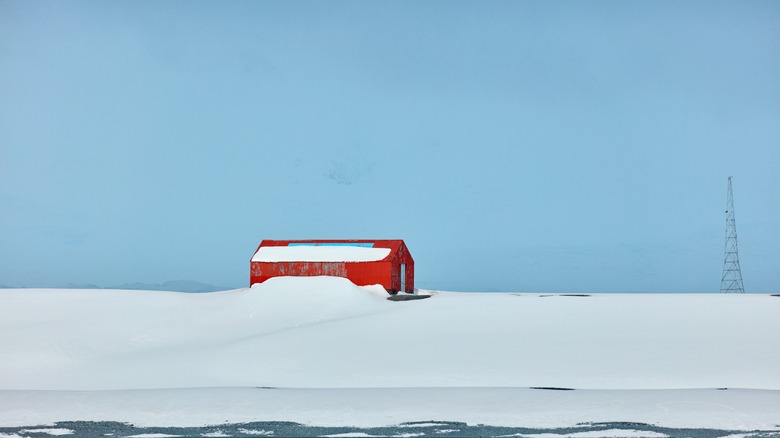Scientist Turns Violent In Antarctica: Here's Why It's Part Of A Troubling Trend
In the 1982 film, "The Thing," a touchstone of the sci-fi horror genre, a group of researchers on a remote Antarctic base is terrorized by a monster that can take the form of their fellow team members. Though the monster itself was only fictional, the horror came from a place of truth: the maddening nature of isolation, which can warp our reasoning, strain our tempers, and challenge our trust in one another.
Last month, scientists at the South African-run Sanae IV research station found themselves living out a horror story of their own (one very different than the alarming flowers blooming in Antarctica). On February 27, a member of the nine-person research team sent an email to the South African government reporting that another team member had turned violent. The story was broken by the Sunday Times, which kept all of the team members' names confidential, and only identified the attacker by male pronouns. According to the accusations, the team member in question had physically assaulted a teammate and threatened to kill them. The attack stemmed from an argument about unspecified work demands.
The South African government promptly instigated an intervention. The exact details of which were not made public, but the attacker was said to have expressed remorse and voluntarily undergone psychiatric evaluation. Mediators were reportedly making contact with the base on a near-daily basis. Despite the reassurances of the South African government, it's hard to imagine that anyone on that research team will be resting easily, especially because this particular attack was not an isolated incident.
This isn't the first assault on an Antarctic base
The reported assault at the Sanae IV station arose from an inherently frightening context: Nine people packed into a small space surrounded by the coldest climate on Earth, with the nearest human outpost (Norway's Troll Station) located about 120 miles away. Sanae IV is a particularly remote station, located over 100 miles inland from the Antarctic ice shelf, and the research team is not scheduled to conclude their year-long stay until December.
Isolation and social distancing takes a serious toll on the brain, and this isn't the first time that an Antarctic researcher has "snapped" in dangerous fashion. In 2017, a member of a different South African research mission destroyed a teammate's computer with an axe over an alleged love triangle. Other countries have faced similar crises. In 2018, an engineer at the Russian-run Bellingshausen Station stabbed a teammate with a kitchen knife. The victim had to be evacuated to a hospital. Later, in 2022, the U.S. National Science Foundation released a bombshell report claiming that, "sexual harrassment, stalking, and sexual assault are ongoing, continuing problems in the [U.S. Antarctic Program]."
Extended isolation, or "cabin fever" as many call it, can grow seriously dangerous seriously fast. Isolation induces restlessness and irritability, and can also lead to sleeping issues, further deteriorating one's mental state. The recurring instances of dangerous behavior at research bases should send a clear message that for endeavors as extreme as Antarctic research, addressing each person's psychological needs is of the utmost importance.

